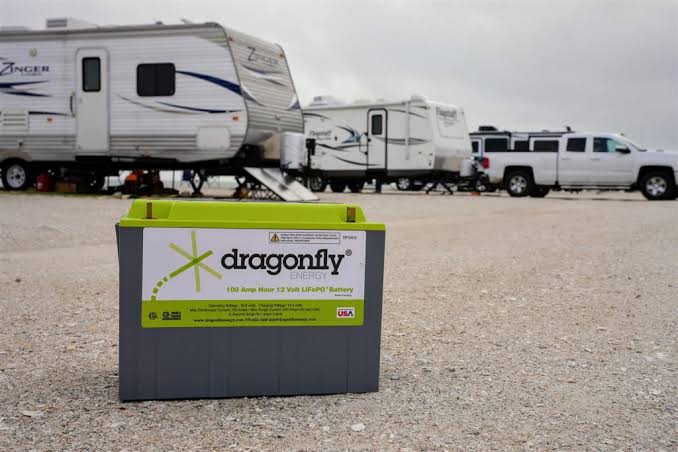Powering Your Adventures: A Guide to Recreational Vehicle Batteries
Embarking on a journey in your recreational vehicle (RV) is all about freedom, adventure, and embracing the open road. Behind every memorable trip lies a reliable power source: the recreational vehicle battery. Whether you’re camping off the grid, cruising down scenic highways, or parked at a picturesque campground, your RV battery plays a crucial role in providing the energy needed to power lights, appliances, electronics, and more. In this blog, we’ll dive into everything you need to know about recreational vehicle batteries, from their types and functions to maintenance tips and choosing the right one for your RV lifestyle.
Understanding Recreational Vehicle Batteries
Recreational vehicle batteries, often referred to as RV batteries or deep cycle batteries, are designed to provide a steady and sustained supply of power for extended periods. Unlike automotive batteries, which are optimized for high bursts of power to start engines, RV batteries are engineered to deliver consistent power output over longer durations, making them ideal for powering onboard appliances and electronics in RVs, campers, travel trailers, and motorhomes.
Types of RV Batteries
- Flooded Lead-Acid Batteries: The most common type of RV battery, flooded lead-acid batteries, feature lead plates submerged in a liquid electrolyte solution. These batteries offer reliable performance and affordability but require periodic maintenance to check electrolyte levels and prevent corrosion.
- Absorbent Glass Mat (AGM) Batteries: AGM batteries utilize a specialized glass mat separator to absorb the electrolyte, resulting in a spill-proof and maintenance-free design. AGM batteries are known for their durability, deep cycling capabilities, and resistance to vibration and shock, making them ideal for RV applications.
- Lithium-Ion Batteries: Lithium-ion batteries are gaining popularity in the RV world due to their lightweight, high energy density, and long lifespan. While more expensive upfront, lithium-ion batteries offer faster charging, deeper cycling, and greater energy efficiency compared to traditional lead-acid batteries.
Functions of RV Batteries
RV batteries serve several critical functions in your recreational vehicle:
- Starting Power: RV batteries provide the initial power needed to start the RV’s engine, just like automotive batteries in cars and trucks.
- House Power: Once the engine is running, RV batteries supply power to the onboard house systems, including lights, appliances, water pumps, entertainment systems, and climate control.
- Auxiliary Power: In off-grid or boondocking situations, RV batteries serve as the primary power source when shore power or generator hookups are unavailable, allowing you to enjoy the comforts of home even in remote locations.
Choosing the Right RV Battery
When selecting an RV battery, consider the following factors:
- Battery Type: Choose a battery type that best suits your RV lifestyle, taking into account factors such as maintenance requirements, deep cycling capabilities, and budget considerations.
- Capacity (Amp-Hour Rating): The capacity of an RV battery is measured in amp-hours (Ah) and indicates the amount of energy the battery can store. Select a battery with sufficient capacity to meet your power needs, taking into account factors such as the number of appliances, duration of use, and frequency of recharging.
- Compatibility: Ensure that the battery you choose is compatible with your RV’s electrical system and charging setup, including voltage requirements, charging methods, and wiring configurations.
Maintenance Tips
To prolong the life of your RV battery and ensure reliable performance, follow these maintenance tips:
- Regular Inspections: Periodically inspect your RV battery for signs of corrosion, damage, or leaks, and clean the terminals and cables as needed.
- Charge Regularly: Keep your RV battery charged to prevent deep discharges and sulfation, which can reduce battery life. If storing your RV for an extended period, consider using a battery maintainer or trickle charger to keep the battery topped off.
- Proper Ventilation: Ensure adequate ventilation in your RV’s battery compartment to prevent the buildup of explosive gases and minimize the risk of overheating or damage.
Conclusion
A dependable RV battery is the lifeline of your recreational vehicle, providing the power needed to fuel your adventures and create lasting memories on the road. By understanding the types and functions of RV batteries, choosing the right one for your needs, and following proper maintenance practices, you can ensure reliable power supply wherever your travels may take you. Whether you’re exploring national parks, chasing sunsets along the coast, or simply enjoying the serenity of nature, a well-maintained RV battery is your ticket to endless adventures and unforgettable experiences on the open road.




Post Comment